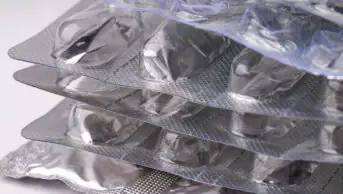
This content was published in 2011. We do not recommend that you take any clinical decisions based on this information without first ensuring you have checked the latest guidance.
They say that variety is the spice of life. I have certainly enjoyed the breadth of clinical specialisms I have experienced over the past eight years in rotational positions within several NHS trusts and specialist hospitals (see Box 1).
Box 1: The author’s journey
After completing my preregistration traineeship and qualifying at Charing Cross and Hammersmith Hospitals in 2004, I spent my first two years as a pharmacist working both as a “bank” clinical pharmacist at Southport and Ormskirk Hospital NHS Trust and as a locum in community pharmacy (allowing me the flexibility to travel abroad intermittently). Then, in 2006, I joined the South East London STEP Programme as a band 6 resident pharmacist at Guy’s and St Thomas’ NHS Foundation Trust. After 18 months of basic rotations at GSTT, I was able to undertake the next three specialist placements from a selection offered by the hospitals and primary care trusts involved in the STEP Programme. Each placement was six months in duration: HIV and sexual health at the Caldecot Centre, King’s College Hospital; paediatrics at Evelina Children’s Hospital; and surgery at GSTT and University College London Hospitals NHS Foundation Trust (half at each trust). I then took a band 7 rotational clinical position at UCLH, where each rotation is for 12 months. After completing my final rotation linked to the Joint Programmes Board Postgraduate Diploma in General Pharmacy Practice (surgery), I moved to medicine and emergency services and then to my current placement at The National Hospital for Neurology and Neurosurgery, part of the UCLH group.
Choosing to remain a rotational clinical pharmacist while progressing from band 6 to band 7 posts has allowed me to continue learning about different areas of specialist practice without committing to a specific career path. For anyone considering their options, this provides a real opportunity to discover where your clinical interests lie and also provides a solid foundation of clinical knowledge and skills — not to mention the opportunity to work with specialist pharmacy colleagues and in multidisciplinary teams.
Consider the rewards
Each specialism will usually require a different knowledge base; adapting to the new environment and developing additional skills can prove to be challenging but, ultimately, is highly rewarding. Different directorates will have different priorities and objectives. Pharmacy roles will also vary. So each rotation provides a new opportunity to understand the various clinical and organisational pressures.
The gold standard of practice in one clinical area might not be applicable to another, and such broad exposure allows pharmacists to develop flexibility and to apply skills developed within one rotation to the next. It also provides the specialisms with “fresh blood”; rotational pharmacists often come with new ideas for improvements based on their previous experiences.
Recognise the drawbacks
Most positions have rotations ranging from six to 12 months, with no guarantee that you will have the opportunity to do your preferred choices or rotate in a specific order. It is highly likely that you will have to rotate through areas that are not so high on your list; yet service demands mean that these positions must be filled. It is important to manage your expectations on this front.
It is also worth thinking about which rotations are available and how many of these are related to your personal development plan. If there are only one or two areas that interest you within a list of many, or if there is a particular specialism within which you have a strong desire to work, then it might not be worthwhile applying for this type of job. A realistic and mature approach is necessary when working within a rotational role and it would be sensible to ascertain how rotations are allocated before accepting such a position.
Finally, being allocated a rotation that is not one of your choices can be disappointing (and it can feel like a long time to be working within an area that does not hold your interest). It is important in such a situation to focus on the positives and what you can do to get the most out of the rotation. There are always skills and knowledge that can be developed.
Maximise your rotation
Before applying for rotations draw up a personal development plan for your career over the next few years and think about which rotations would help you to complete the goals within this. It would be a good idea to discuss your choices with your mentor or tutor (see below) and ask his or her advice as to whether your choices are realistic and appropriate to your objectives and experience. Think about:
- How rotations are allocated
- Which areas interest you most
- What you would hope to get out of each experience
Once you know your allocation to the next rotation, contact the lead pharmacist to get an idea of the kind of clinical knowledge and skills that will be required and whether there are any texts or guidelines that are essential or useful to study.
Within the first few weeks, arrange a meeting with the lead pharmacist to discuss what is expected of you and to get a clear picture of what your role will be within the rotation. It would be sensible to discuss both his or her expectations of you and your own expectations of the rotation.
Make a list of objectives to achieve during the rotation and regularly review your progress to ensure you maintain the momentum to complete them within the rotation period.
Objectives can be linked to a clinical diploma, the general level framework, the advanced and consultant level framework, requirements of the specialism, or personal and professional aspirations. Clinical skill is an obvious area for development but there will also be opportunities to develop in other areas, such as multidisciplinary networking, presentation skills, managerial experience, education and training, research, etc.
Ensure any objectives you set are “SMART” (specific, measurable, achievable, realistic and timebound) and cover both clinical and non-clinical growth. Examples of non-clinical objectives are set out in Box 2.
Box 2: Look beyond the ward
This list is not exhaustive but should provide some ideas for how to develop non-clinical skills within your rotations:
Networking Take part in clinical and post-take ward rounds, clinical governance activities, department and business planning meetings
Directorate work Interpret finance data; develop patient group directions; update clinical guidelines and protocols; conduct controlled drug checks and reports; contribute to clinical incident reporting and root cause analyses, formulary applications, unlicensed drug use reports and medicines information enquiries
Managerial tasks Supervise, mentor and train junior staff and technicians; take responsibility for creating rotas and timetables
Education and training Conduct teaching sessions for pharmacy, medical and nursing staff; complete assessments and appraisals of junior staff; support pharmacy students on placement
Audit and research Undertake audits, change management projects, therapeutic reviews, service evaluations; become involved in clinical trials
Find a mentor
Having a mentor, educational facilitator or tutor for the duration of each rotation and throughout your time working in the position is hugely beneficial. Make sure that regular meetings are arranged to discuss your progress; this ongoing dialogue can help you to keep track of where you are performing well and what areas for development exist.
End-of-rotation appraisals — including multi-source feedback (see Clinical Pharmacist 2010;2:63) — are also useful for assessing how you have performed. Constructive criticism is always beneficial.
In my own experience, taking on board feedback — positive and negative — is essential for developing as a practitioner. It enables me to apply what I have learnt to my next rotation and continue growing as a well rounded clinical practitioner.


